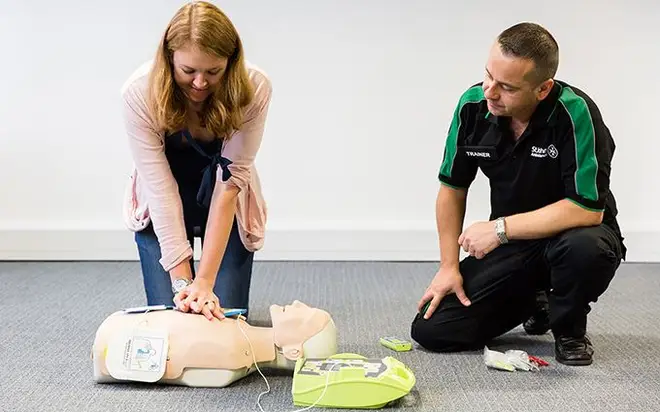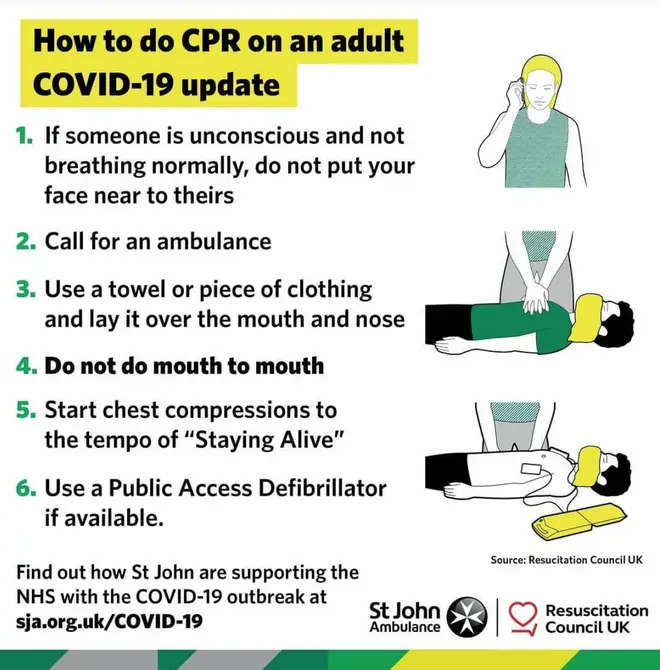
Nick Abbot 10pm - 12am
31 March 2020, 06:54

With the threat of Covid-19 in the UK many people are asking is it still safe to do CPR on people? And should you change the way you do CPR?
The Resuscitation Council says whenever CPR is carried out, particularly on an unknown victim, there is some risk of cross-infection, associated particularly with giving rescue breaths.
However, normally, this risk is very small and is set against the inevitability that a person in cardiac arrest will die if no assistance is given.
But special advice has been issued during the coronavirus pandemic.
The Resuscitation Council said they are aware of concerns regarding risk of transmission of Covid-19, but wish to emphasise the "crucial importance of doing CPR for the person in cardiac arrest."
A spokesperson said: "In the UK, almost 200 people a day will suffer a cardiac arrest out of hospital. When someone has a cardiac arrest, they are not breathing normally and their heart has stopped.
"With no treatment, this person will die, usually within a few minutes. Early CPR and defibrillation give them their best chance of survival."
The advice from St John Ambulance says, in your own home:
-If someone is unconscious, or not breathing normally, do not put your face near theirs.
-Call for an ambulance and shout for help straight away.
-Use a towel, or piece of clothing and lay it over their mouth.
-Do not perform mouth to mouth.
-Start chest compressions to the tempo of "Staying Alive."
-Use a public access defibrillator if there is one available.

The Resuscitation Council says you can recognise cardiac arrest by looking for the absence of signs of life and the absence of normal breathing.
They warn not to listen or feel for breathing by placing your ear and cheek close to the patient’s mouth.
If you are in any doubt about confirming cardiac arrest, the default position is to start chest compressions until help arrives.
Make sure an ambulance is on its way. If Covid-19 is suspected, tell them when you call 999.
If there is a perceived risk of infection, rescuers should place a cloth/towel over the victims mouth and nose and attempt chest compression only CPR and early defibrillation until the ambulance (or advanced care team) arrives.
Early use of a defibrillator significantly increases the person’s chances of survival and does not increase risk of infection.
If the rescuer has access to personal protective equipment (PPE) (e.g. FFP3 face mask, disposable gloves, eye protection), these should be worn.
After performing compression-only CPR, all rescuers should wash their hands thoroughly with soap and water; alcohol-based hand gel is a convenient alternative. They should also seek advice from the NHS 111 coronavirus advice service or medical adviser.